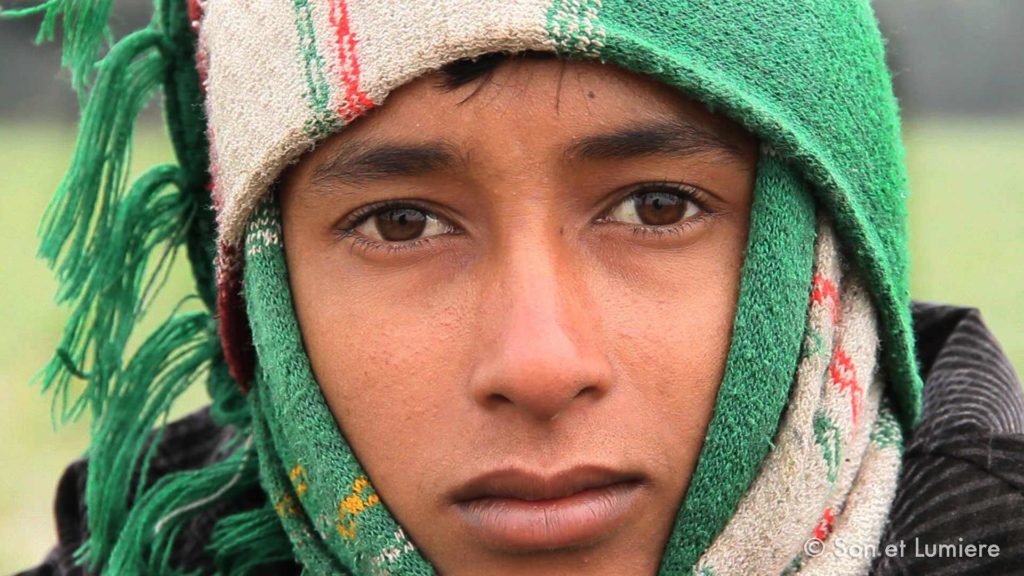
retour à la liste / back to list
Lundi 11 novembre 2013 / Monday 11th November 2013
Moddhikhane CHAR
CHAR… la no-man’s île
CHAR… the No-Man’s Island
Inde | 2012 | 88 min | vostf
un film de / directed by : Sourav Sarangi (Inde)
image et montage / photography and editing : Sourav Sarangi
son / sound : Shinichiro Ogata
production : Sourav Sarangi (Inde) – souravsarangi@gmail.com
distribution : CAT&Docs (France) – cat@catndocs.com
Rubel, un garçon de quatorze ans, rêve d’aller à l’école, mais la réalité l’oblige à traverser quotidiennement le Gange pour la contrebande de riz entre l’Inde et le Bangladesh, sous une pression policière incessante. Après la destruction de sa maison par le fleuve, sa famille s’est installée sur une île éphémère, baptisée Char, où se sont réfugiés ceux qui ont tout perdu. À la mousson, le fleuve se gonfle à nouveau, et érode l’île. «Char peut disparaître un jour, mais nous survivrons», dit Rubel.
Rubel, a fourteen-year-old boy, dreams of going to school, but reality forces him to smuggle rice from India to Bangladesh, under constant Police surveillance. After their home was destroyed by the Ganga River, Ruben and his family settled on the island of Char, an ephemeral island, where homeless people took refuge. As the monsoon starts, the river swells up again and begins to erode the island. « Char may disappear someday but we won’t », smiles the boy.
site internet / official film website :www.char.org.in
Sourav Sarangi est né en 1964. Il a étudié la géologie avant de suivre des études de montage au Film and Television Institute of India de Pune. Il participe ensuite à l’écriture, la réalisation, le montage et la production de fictions et documentaires remarqués lors de festivals internationaux. Directeur de programme pour la télévision indienne, il est également enseignant.
Filmographie :
Bilal (2008), Bhangon (Erosion, 2006), Ashray (The Home, 2005), Roopkathar Jiban (Living in Fairytale, 2004), Thirst of God (1997), Tusu Katha (The Tale of Tusu, 1997)
